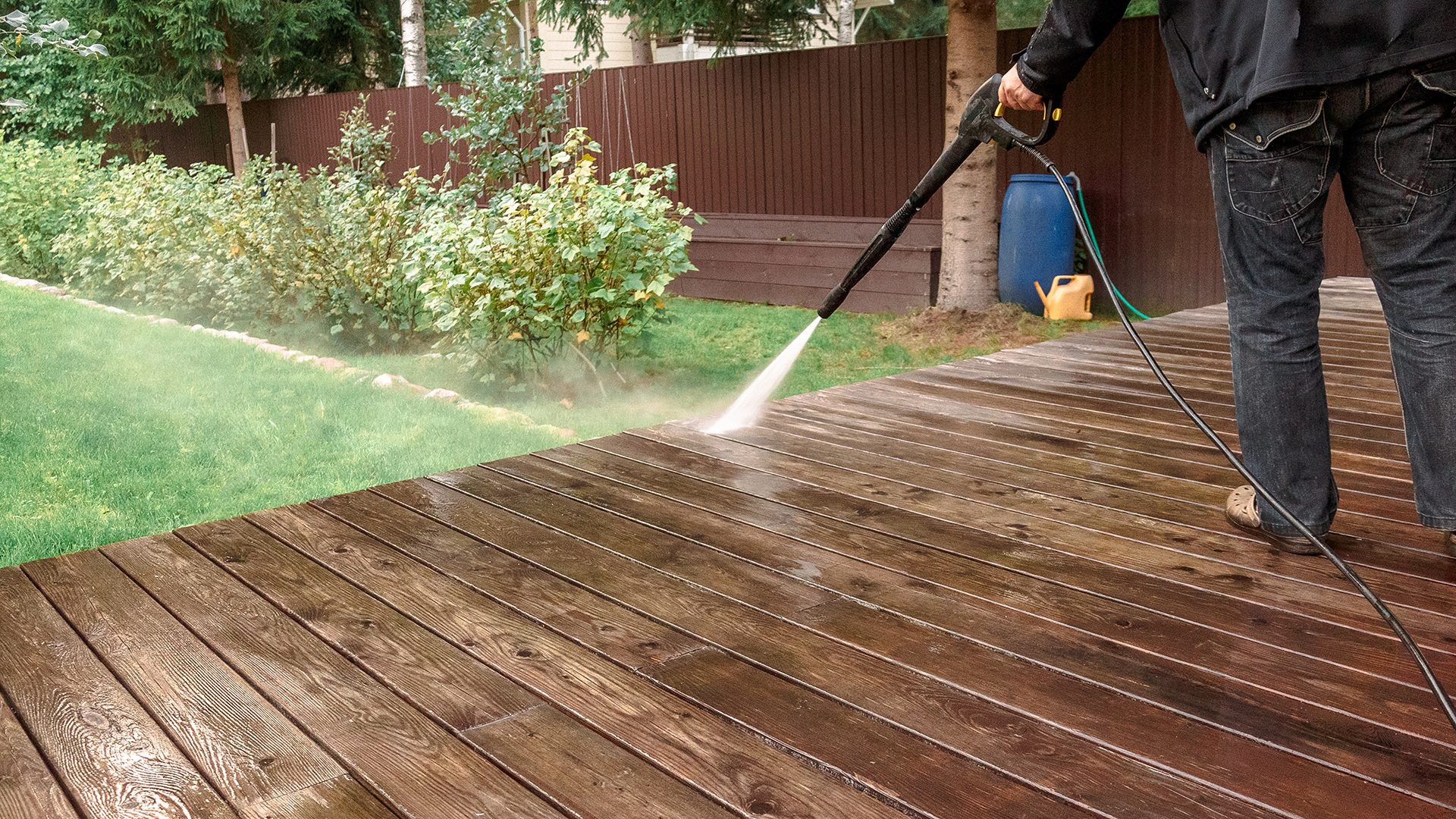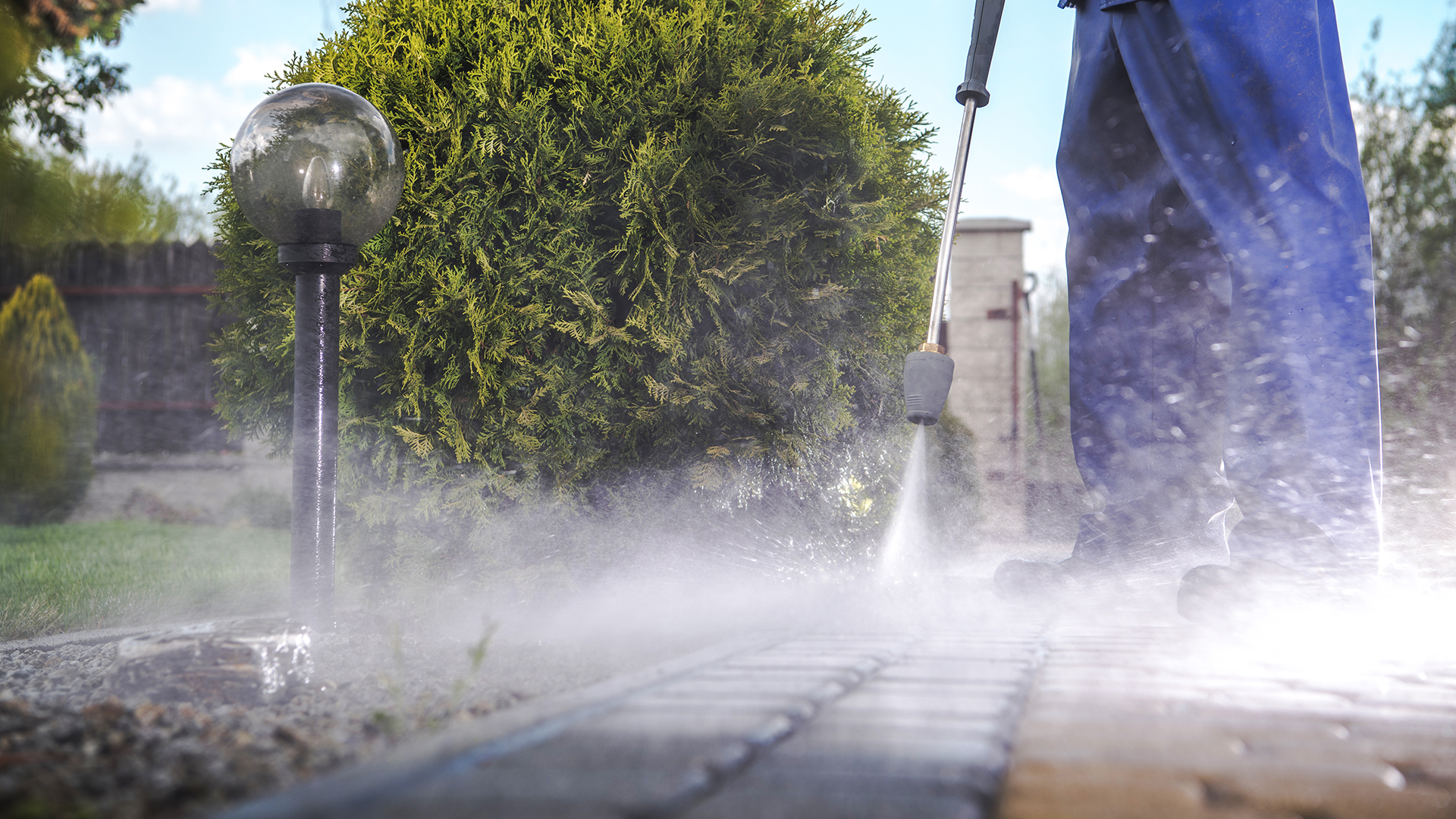What is a good PSI for a pressure washer?
What does PSI mean and what is a good PSI for a pressure washer? Our handy guide has everything you need to know.

If you’re toying with the idea of purchasing a presser washer to use at home, chances are you’ll have come across the term PSI, which is a measurement of how powerful a pressure washer is. But what is a good PSI for a pressure washer? Is it possible to have too much pressure? And what PSI do you need for all those routine home maintenance chores, such as cleaning the car, refreshing the decking, and washing your BBQ grill?
We’ve done our research and spoken to the experts to give you a handy guide to PSI, what it means, and how you can adjust it to suit most tasks. We’ve also got top tips from a gardening expert on the best pressure to use, whether you’re clearing gutters or giving your patio a facelift.
And if you’re looking to buy a pressure washer or you’re replacing your old model, check out the best pressure washers for our picks of the best products. Alternatively, the latest cheap pressure washer deals will give you a bargain on anything from gas and electric models to lightweight and budget options.
What does PSI mean?
Fiona Jenkins, the resident gardening expert at My Job Quote, says, “If you’re doing light work such as cleaning up decking, fencing, or garden furniture, up to 1,450 PSI should do the trick. For clearing gutters, cleaning your car, or refreshing your patio, go for 1,595 - 1,885 PSI. For heavy-duty work such as cleaning large paved areas or pool tiles, you'll want a pressure washer of around 1,885 - 2,175 PSI."
PSI stands for pound per square inch. This is the measurement of the force of pressure (one pound), against an area measuring one square inch. In other words, how much force the water has when coming out of the pressure washer nozzle.
The higher the PSI, the more powerful this force will be. That’s why it’s important to check your pressure washer’s PSI before you embark on a home maintenance task. Too high a PSI and you risk damaging the surface you’re using it on. Too low, and you’re not getting the clean finish you want.
Most pressure washers designed for residential use have a lower PSI than machines designed for industrial use. Electric pressure washers usually offer between 1,300 and 1,700 PSI, while gas-powered models have a little more oompf - at around 2,000 to 2,800 PSI.
When getting to grips with PSI, it’s also useful to understand GPM. This stands for gallons per minute, which is a measurement of a pressure washer’s water flow. A high GPM means more water is coming through to blast away the dirt and debris.
Sign up to receive the latest news, reviews, buying guides and deals direct to your inbox

By multiplying the PSI by GPM, you’ll come up with the pressure washer’s cleaning units value (CU), which is another way of measuring how efficient your pressure washer is. The higher the CU is, the faster your pressure washer will be at getting the job done.
So now you know what PSI is and how it increases the power of your pressure washer, what’s the right PSI to use when tackling different projects around your home and yard? Read on for more tips and expert advice.
What is a good PSI for a pressure washer?
When considering what PSI you need, it’s useful to make a note of all the maintenance tasks you want to do around your home. For example, do you want to clean your car, refresh the decking, clean the driveway, or strip paint?
Each of these tasks requires a different PSI to ensure the surface you’re working with isn’t damaged by too much force, but also that you use enough force to clean it effectively.
To get an idea of what PSI you need, take a look at the following tasks and their recommended PSI:
- Cleaning a car: 1,200 - 1,900
- Cleaning fences and decking: 1,000 - 1,200
- Concrete cleaning: At least 3,000
- Paint stripping: 2,000 - 4,000
- Graffiti removal: 2,000 - 3,000
- Asphalt driveway cleaning: 3,000 - 4,000
- Brick driveway cleaning: 2,000 - 3,000
- Vinyl siding cleaning: 2,500 - 3,000
- Window cleaning: 1,500
- Cleaning BBQ grills: 2,000
While using too low a pressure is highly unlikely to do any damage, you’re certainly not going to get your surfaces as clean as you’d like, and the job will take much longer.
However, too high a pressure can cause lots of problems. For example, you could ruin your car’s paintwork and even create dents in the bodywork if you’re not careful. Softer woods, many of which are used in decking, can also splinter and crack under high pressure.
When in doubt and as a good rule of thumb, start at a lower pressure and work your way up.
Many pressure washers have a dial to increase or decrease the pressure used. These are often located on the pump or the spray wand. You can also do it very simply by stepping closer to the surface to increase the pressure and stepping back to decrease the pressure.
Discover more guides for the garden…
Best chainsaws
Best leaf blowers
Best patio heaters
Best inflatable hot tubs

Joanne Lewsley is a reputable freelance writer specializing in evidence-based health and lifestyle content. With a background in journalism and extensive experience working for known brands, Joanne rigorously tests and evaluates home gadgets. Her passion for writing is complemented by her love for the outdoors and live music.
